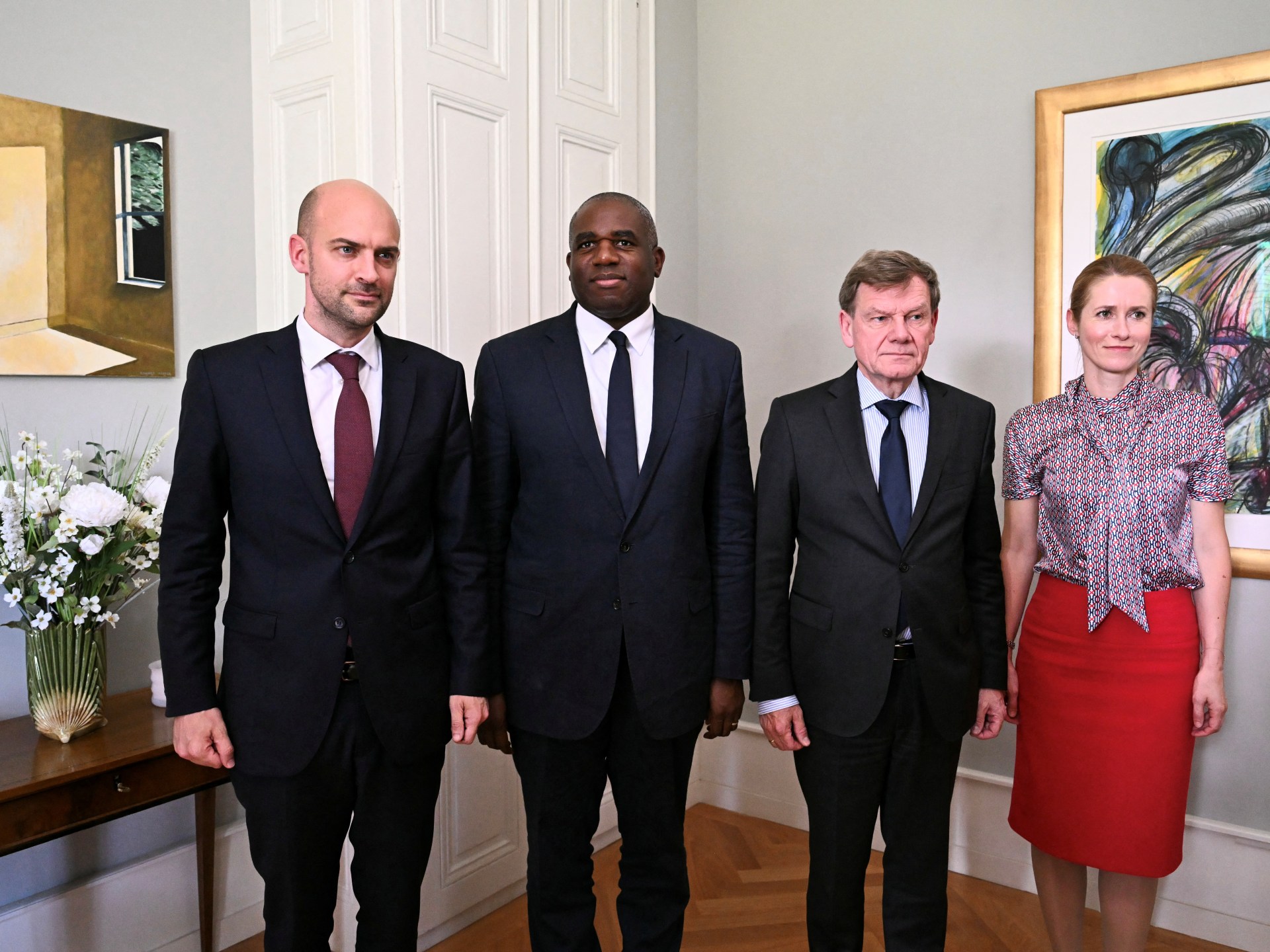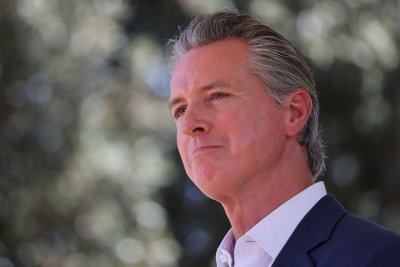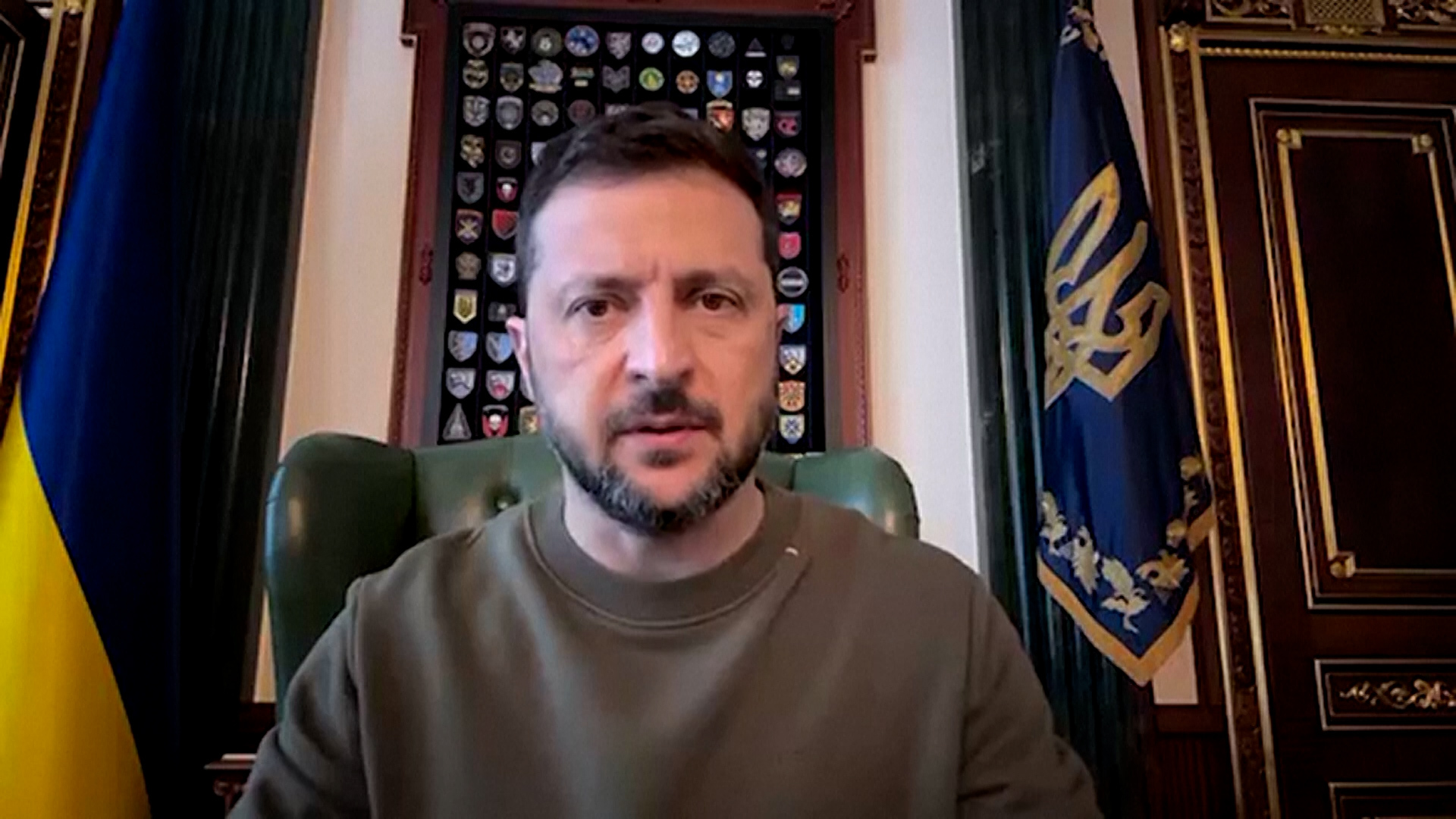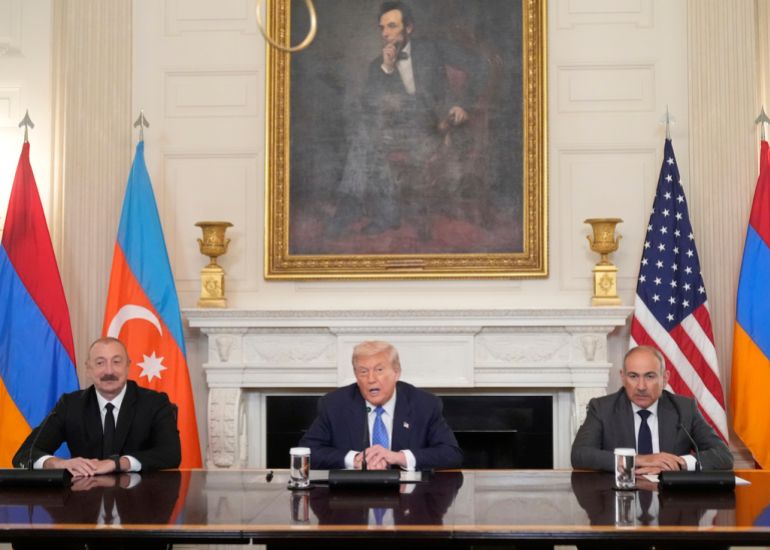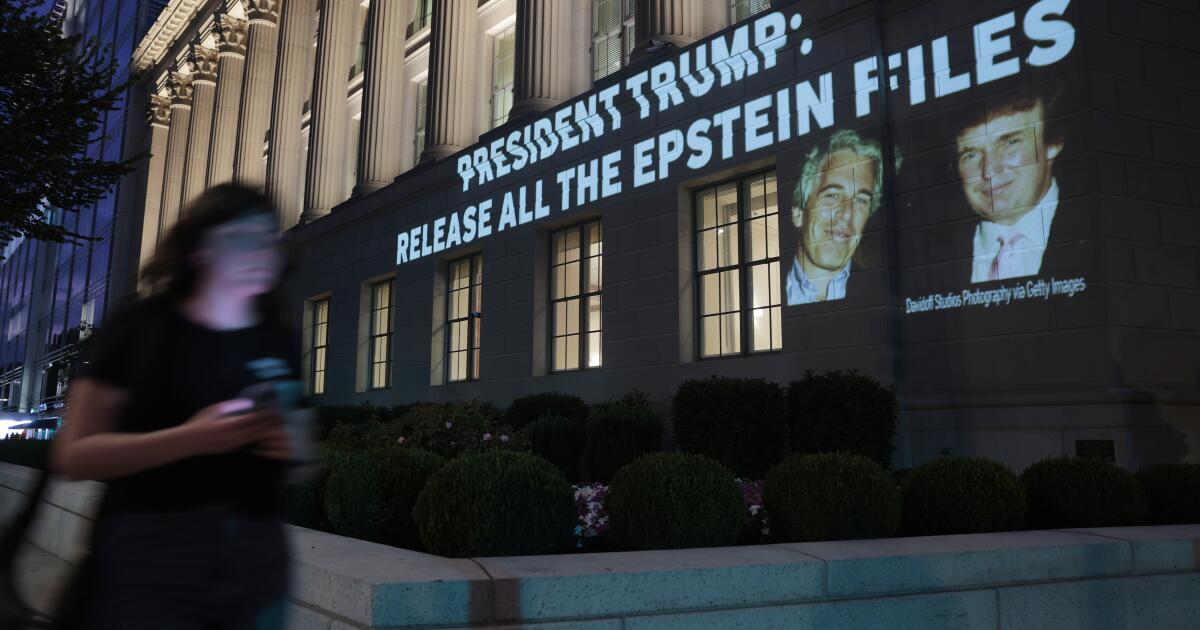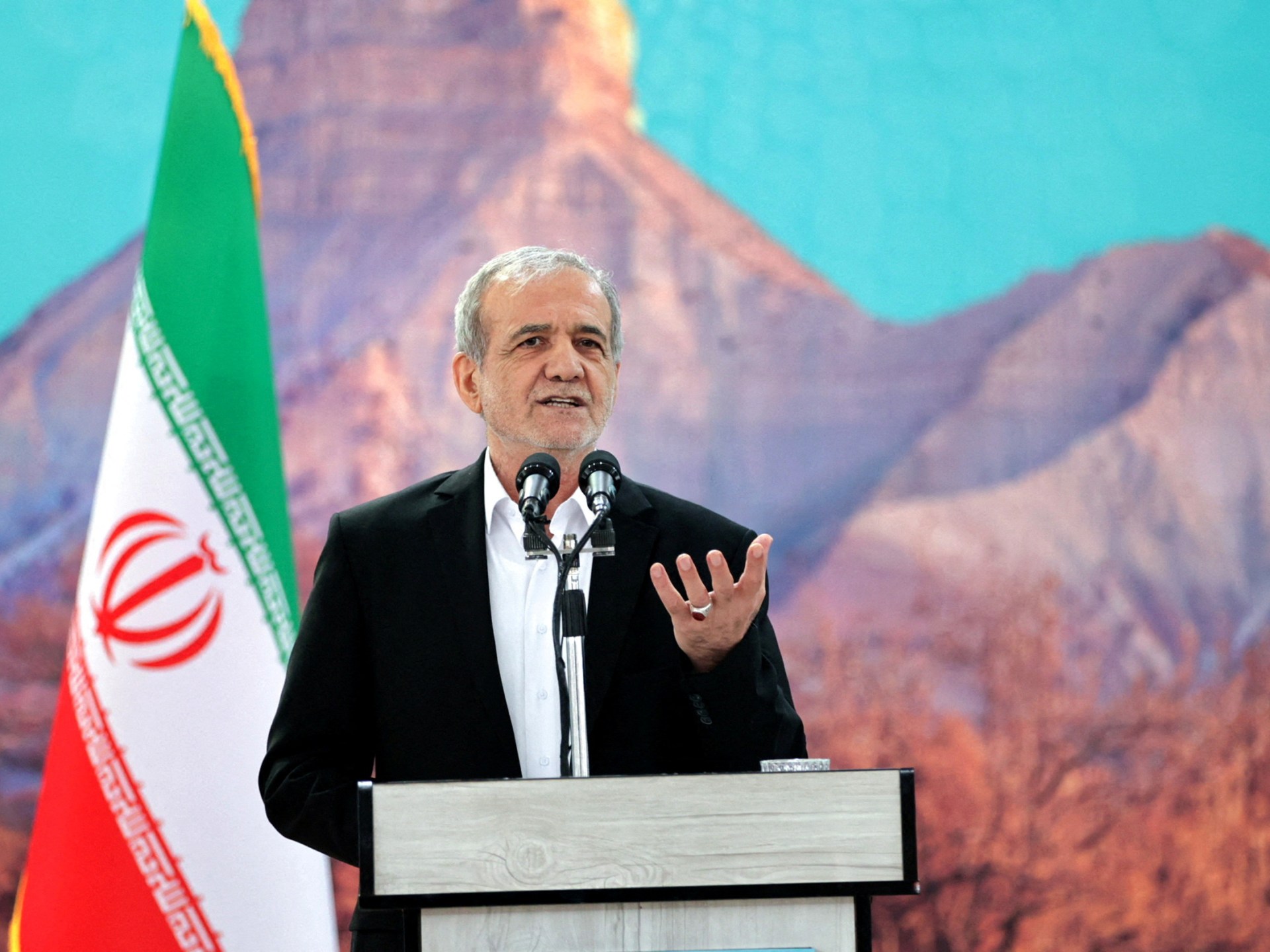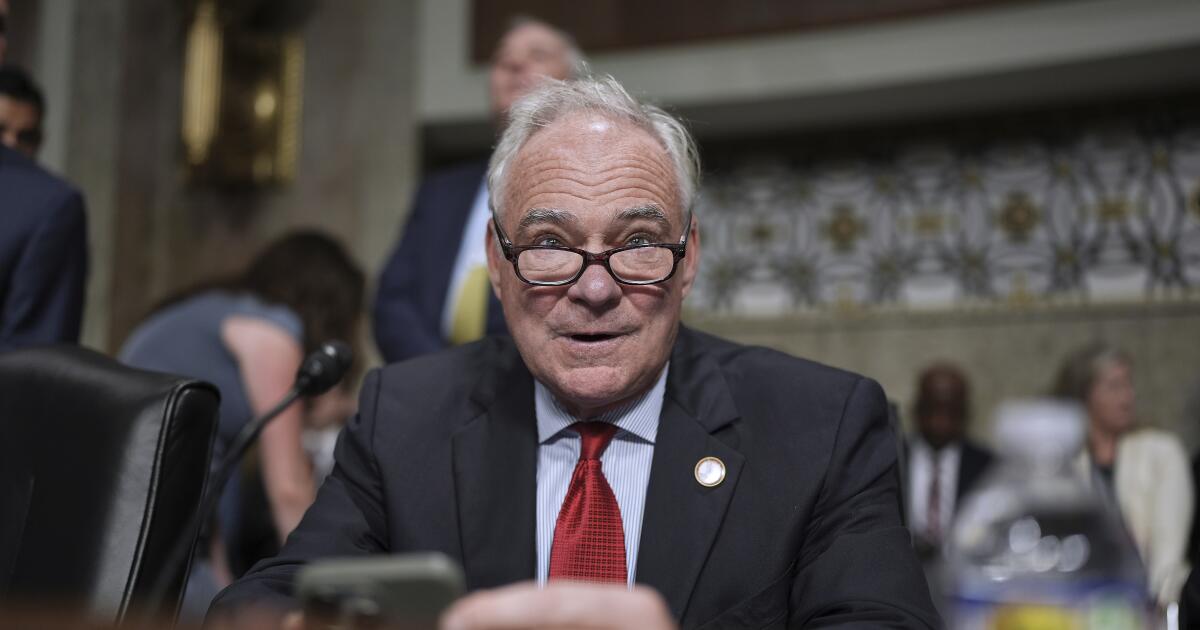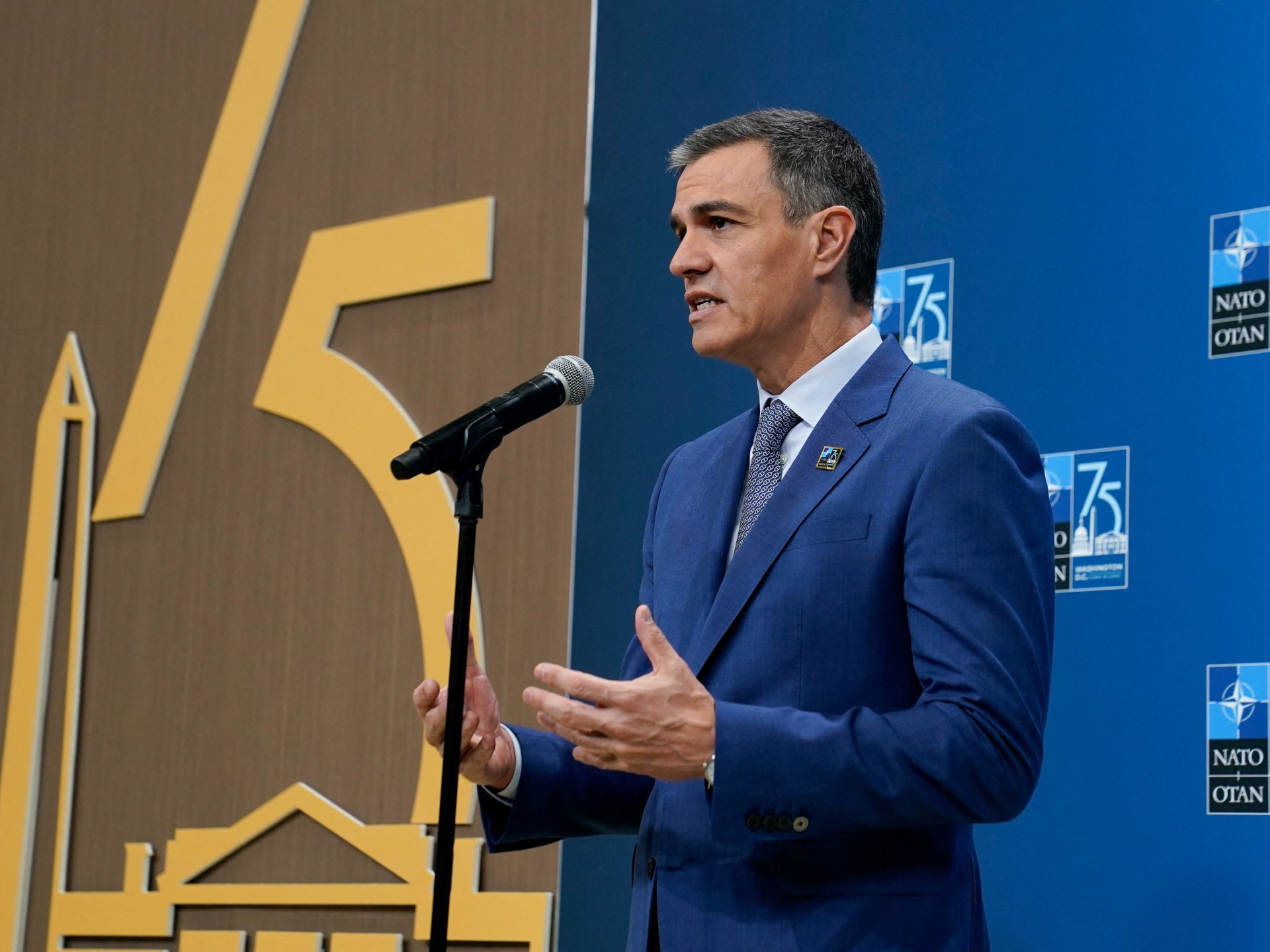US judge rejects Trump’s lawsuit against Maryland federal court system | Donald Trump News
A United States court has tossed a lawsuit from President Donald Trump that accused every federal judge in the Maryland district court system of having “used and abused” their powers.
On Tuesday, District Judge Thomas Cullen, a Trump appointee, granted the Maryland judges’ request to have the case dismissed.
Cullen normally serves in the federal court system for the western district of Virginia, but since all 15 judges in Maryland’s district court system were named as defendants in the case, someone from outside the state had to be brought in to resolve the case.
The lawsuit was a highly unusual, broad-strokes attack on the federal judicial system in Maryland, where Trump’s immigration agenda has faced several high-profile setbacks.
Critics also say the lawsuit was yet another indication of Trump’s adversarial approach to the judicial branch of the government, which he has repeatedly accused of over-stepping its authority in the wake of unfavourable rulings.
But during hearings on the subject, Cullen had expressed doubt about the Trump administration’s case early on.
He questioned what might happen to the government’s separation of powers if Trump and his officials decided to sue an appellate court or even the Supreme Court for disagreeing with his policies.
Cullen described the lawsuit against all of Maryland’s federal judges as an escalation in Trump’s fight with the judiciary: “taking it up about six notches”, he said.
“I think you probably picked up on the fact that I have some scepticism,” Cullen told lawyers for Trump’s Department of Justice.
Cullen also suggested that the Trump administration would have been better served by appealing the specific court injunctions it disagreed with, rather than suing an entire district court system.
“It would have been more expeditious than, you know, the two months we’ve spent on this,” he said.
Origins of the lawsuit
The Trump administration first filed its lawsuit on June 25. At the time, the Justice Department explained that it objected to the “automatic injunctions” that the court system “issued for federal immigration enforcement actions”.
Trump has been leading a campaign of mass deportation since taking office for a second term in January. That effort, in turn, has prompted a slew of legal challenges over immigrants’ right to a court hearing, among other issues.
In announcing June’s lawsuit, Attorney General Pam Bondi argued that Trump had been subject to “an endless barrage of injunctions designed to halt his agenda”.
The complaint cited a May 20 order from Chief Judge George Russell of the Maryland district court system, which barred the Trump administration from immediately deporting immigrants who had filed a habeas corpus petition — a petition for a court to review the lawfulness of their detention.
Under Russell’s order, the block against deportation would remain in place for two business days, unless a judge decided to extend it.
In justifying the order, Russell explained that the Trump administration’s deportation push had resulted in “hurried and frustrating hearings” that lacked “clear and concrete” information.
He added that his order would ensure access to the court, allowing both the government and immigrants “fulsome opportunity” to present their cases.
Maryland has also been the site of other court hurdles for the Trump administration’s agenda, though Russell’s order was the only one singled out in the lawsuit.
For example, in April, Maryland District Judge Paula Xinis ruled that the Trump administration had to “facilitate” the return of Kilmar Abrego Garcia, a Salvadoran man whose wrongful deportation came in spite of a 2019 court protection order barring his removal.
Xinis has since warned that she was weighing contempt charges against the Trump administration for failing to comply with her orders.
What arguments were made in the case?
But the Trump administration has maintained that the judges’ court orders amount to the “unlawful restraint” of the president’s powers.
“Injunctions against the Executive Branch are particularly extraordinary because they interfere with that democratically accountable branch’s exercise of its constitutional powers,” the complaint said.
In an August 13 hearing, lawyers for the Justice Department presented those arguments before Judge Cullen.
“Every single time one of these orders gets entered, our sovereign interests in enforcing duly-enacted immigration law are being inhibited,” Justice Department lawyer Elizabeth Hedges argued.
The extraordinary nature of an entire court system being sued required Maryland’s 15 federal judges to hire their own legal team in their defence.
Paul Clement — a conservative lawyer from the law firm Clement & Murphy who previously served under former President George W Bush — represented them at that hearing and called the Trump administration’s attacks “no ordinary matter”.
He pointed out that the lawsuit disrupted the everyday business of the court system, including by requiring Judge Cullen to travel from Virginia to oversee the case.
“All of the alternatives that are available avoid that kind of nightmare scenario,” Clement said. “That nightmare scenario is part of the reason that we don’t have a tradition of suits that are executive versus judiciary.”
Clement also argued that the Trump administration aimed to limit the power of the judiciary to weigh constitutional matters related to immigration.
“The executive branch seeks to bring suit in the name of the United States against a coequal branch of government,” Clement said. “There really is no precursor for this suit.”

